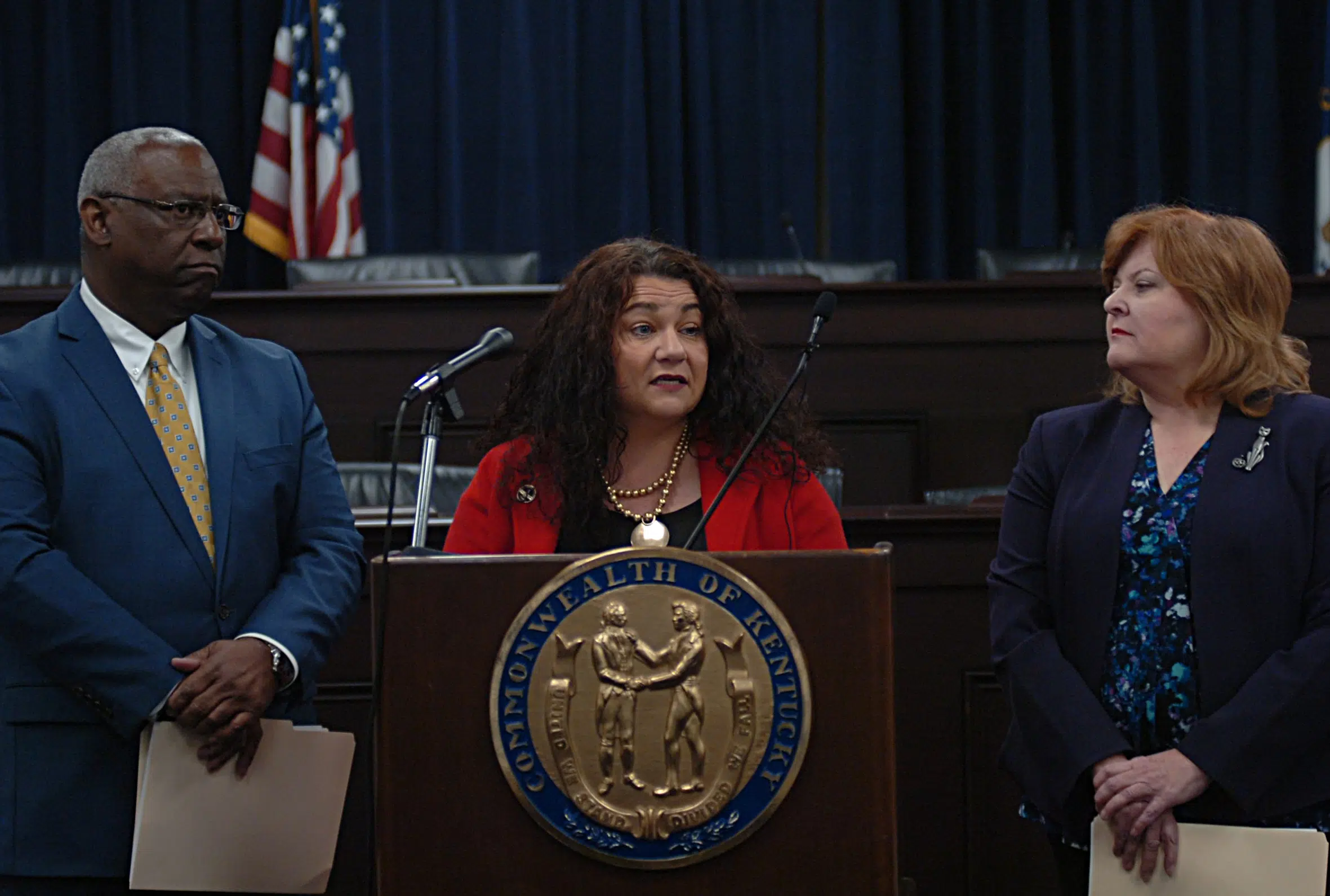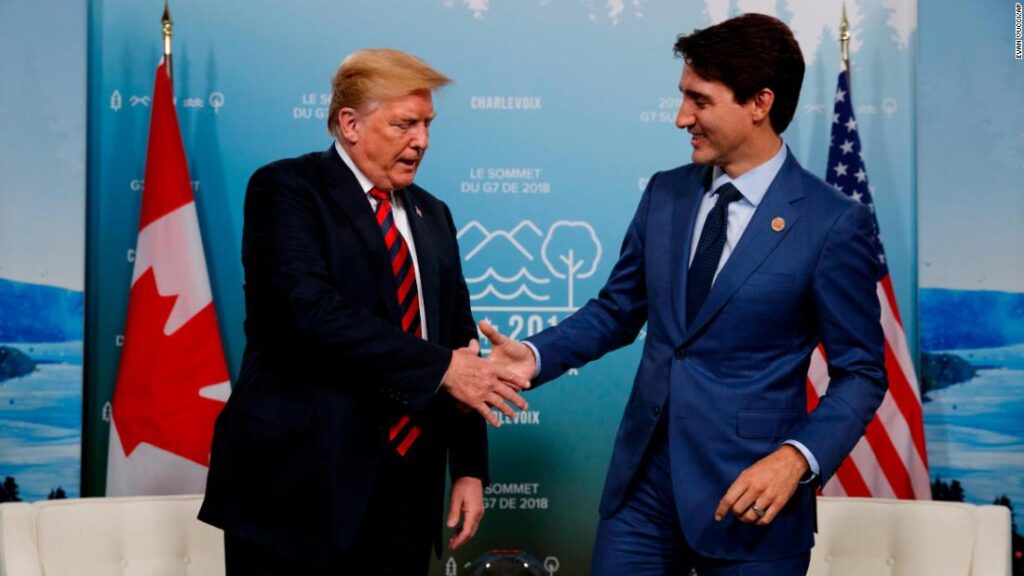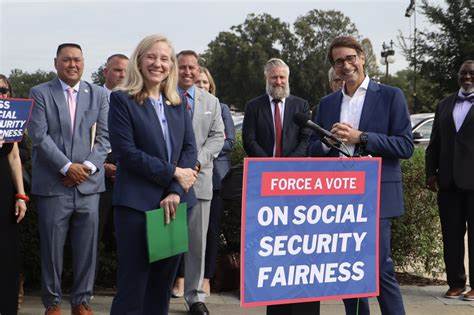In a surprising move, U.S. President-elect Donald Trump has taken a jab at Canadian Prime Minister Justin Trudeau, referring to him as the “governor” of Canada and implying that the country could be considered the 51st state of the United States.
Trump’s comments follow his threats to impose 25% tariffs on all Canadian imports, sparking concerns of renewed trade disputes between the two neighbors. Trudeau has responded by calling for calm but hinted that Canada is prepared to retaliate against any unjust tariffs. This tension echoes the tariff wars of Trump’s first term, leaving many to wonder what the future holds for U.S.-Canada trade relations.
The Context: Trump’s “51st State” Quip
During a social media post on Tuesday, Trump wrote:
“It was a pleasure to have dinner the other night with Governor Justin Trudeau of the Great State of Canada. I look forward to seeing the Governor again soon so that we may continue our in-depth talks on Tariffs and Trade, the results of which will be truly spectacular for all!”
This statement follows a previous dinner Trump had with Trudeau at Mar-a-Lago last month, where he allegedly joked that Canada should consider joining the United States if trade deficits persist.
While some dismiss Trump’s remarks as a joke, others believe this rhetoric is a pressure tactic aimed at pushing Canada to comply with U.S. trade demands. Trudeau’s government, however, remains steadfast in protecting Canada’s economic interests.
Canada’s Preparedness: Trudeau’s Calm but Firm Response
Prime Minister Trudeau responded to Trump’s remarks and tariff threats with a balanced tone, stating that Canada would not hesitate to take action if unfair tariffs are imposed.
“We will, of course, as we did eight years ago, respond to unfair tariffs in a number of ways, and we’re still looking at the right ways to respond,” Trudeau said on Monday.
Trudeau’s reference to “eight years ago” points to Trump’s steel and aluminum tariffs imposed during his first term in 2018. Canada retaliated swiftly back then, placing counter-tariffs on a variety of U.S. goods including:
- Toilet paper
- Strawberry jam
- Mattresses
- Playing cards
These tariffs caused economic pain for certain U.S. industries, eventually prompting Trump to lift the restrictions a year later.
Now, Trudeau is set to meet with Canada’s premiers to discuss strategies for countering Trump’s proposed tariffs and to ensure Canada remains prepared for the challenges ahead.
The Economic Impact of a 25% Tariff
If Trump imposes a 25% tariff on Canadian imports, the economic fallout could be significant for both nations. Canada is the largest trading partner of the United States, with billions of dollars in goods crossing the border daily. Key industries likely to be impacted include:
- Automobiles: Canada’s auto sector relies heavily on exports to the U.S.
- Agriculture: Canadian farmers may face challenges exporting products like dairy and poultry.
- Manufacturing: The steel and aluminum industries could again bear the brunt of trade tensions.
For the United States, retaliatory tariffs from Canada could affect American products and businesses, creating supply chain disruptions and price increases.
Why Is Trump Using This Rhetoric?
Trump’s comments about Canada becoming the 51st state are likely intended as a provocative political tactic. By framing Canada as economically dependent on the U.S., Trump may aim to:
- Pressure Trudeau’s government into trade concessions.
- Appeal to Trump’s protectionist base ahead of his presidency.
- Reignite debates over trade deficits, a long-standing focus of Trump’s economic policy.
This rhetoric also plays into Trump’s broader “America First” agenda, which prioritizes domestic manufacturing and trade dominance.
How Canada Can Respond: Key Strategies
As Canada braces for potential tariffs, Trudeau’s government has several tools at its disposal:
- Targeted Retaliation: Imposing tariffs on specific U.S. goods to maximize economic pressure.
- Trade Diversification: Strengthening trade relations with other countries to reduce reliance on the U.S. market.
- Diplomatic Engagement: Leveraging partnerships with American allies and businesses that rely on Canadian imports.
Trudeau’s ability to navigate these challenges will be critical in maintaining economic stability while pushing back against protectionist U.S. policies.
The Bigger Picture: U.S.-Canada Relations at a Crossroads
While Trump’s “51st state” comments may be tongue-in-cheek, they underscore the fragility of U.S.-Canada trade relations in the current political climate. Despite being close allies and trade partners, tensions over tariffs have tested the relationship in recent years.
However, history shows that Canada is resilient in the face of trade disputes. By preparing a well-rounded strategy and standing firm, Trudeau’s government can counter Trump’s rhetoric while protecting Canada’s economic interests.
What Comes Next?
Trump’s remarks about Canada being a “great state” may grab headlines, but the underlying issue — escalating trade tensions — is no laughing matter. As Trump threatens a 25% tariff on Canadian imports, Trudeau must walk a fine line between diplomatic calm and decisive action.
The coming weeks will be crucial as Canada prepares its countermeasures and engages with U.S. officials to resolve the dispute. For now, Canadians can rest assured that their government is ready to defend their economic interests and respond to any unfair trade actions.











